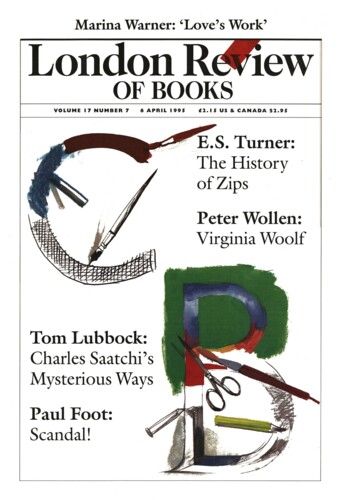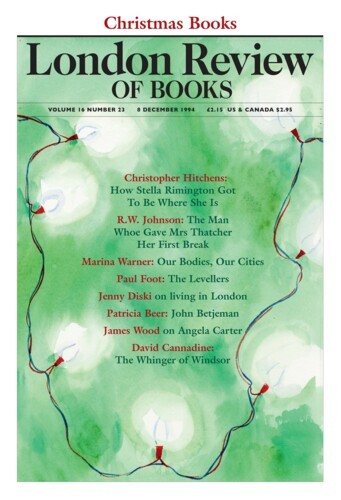What Charlotte Did
Susan Eilenberg, 6 April 1995
Juliet Barker’s The Brontës is an uneasy work. It seeks to defend the family it takes as its subject against those who sought to invade its privacy: the Victorian reading public, with its prurient speculations about the mysterious authors Currer, Ellis and Acton Bell; meddling acquaintances whose reports fuelled those speculations; previous biographers who exploited those reports; close friends such as Ellen Nussey who defied Charlotte’s husband Arthur Nicholls and refused to burn the letters Charlotte sent her; even Charlotte herself, who, by reading her sister Emily’s poems, violated her privacy and thus allied herself with the intruders and the voyeurs. As a biographer and as a scholar of the Brontë family – she was for many years curator at the Brontë Parsonage Museum – Ms Barker has a stake in Charlotte’s accidental discovery and in Nussey’s obstinacy, even in the salacious speculation she deplores. But her sympathies are with Nicholls, threatening censorship, and with Emily, secretive and outraged. Too conscientious to withhold information, she proceeds only after reminding us that the privacy she seems to violate had in fact been violated long since by those she charges with ignorance, malice and greed. This makes for embarrassing reading.’


